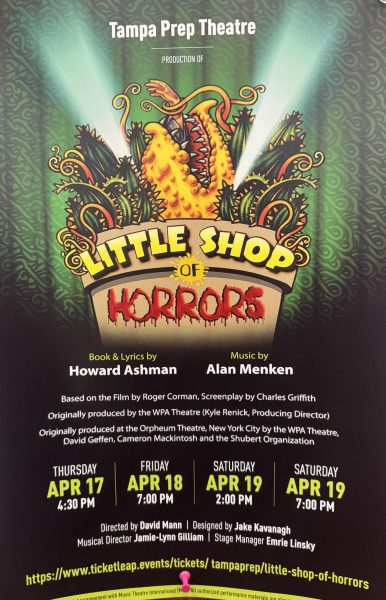Declamations in a COVID World
COVID-19 has impacted many different school events this year, and declamations are no exception. The yearly public speaking and writing competition has been an excellent way for students to showcase their English abilities and creativity to their teachers, peers, and other members of the Tampa community. But with social distancing guidelines, students divided into cohorts, and the occasional required quarantine, the process of declamations has had to change along with the times.
In previous years, declamations have functioned as a public speaking competition consisting of three rounds. The first round would be individual English classes, then a winner is selected from each English class, and in the second round, the winner competes against other winners from their grade level. Finally, a winner is selected from each grade and they perform in front of the entire school community. The competition has always served to inspire students to become more comfortable with public speaking, as well as to inspire creativity.
“I think [Declamations] are incredibly valuable,” said John Bamford, English teacher, “Public speaking is a very important skill in life. people who have [this skill] are people who end up rising to the highest echelon.”
This year has been a challenge to the English department. They needed to find a way to comply with health and safety regulations (which means no assemblies,) while still maintaining the spirit, value, and benefits of the Declamation process.
“We just kinda had our plan A, which was our optimistic thinking that January would come and we could pretty much preserve the Declamations, but as time has passed it has become obvious that that wasn’t realistic,” Stephanie Cardillo, Head of the English Department, said.
The English department has decided to cut the process of Declamations down to two rounds. One round of English class Declamations, where a winner will still be selected, and then a grade level round, which will be conducted through a ZOOM assembly, where there will be no winner selected. However; the other, speech writing aspect of the Declamation process remains the same.
“I’m glad we are preserving the tradition, even if we have to change it, but I do think it is kinda sad for the people who end up winning that they don’t get the recognition of an all-school assembly,” said Emma Lefferts, 10th grader, and previous Declamation winner.
The only aspect that is still up in the air, at this point, is whether or not students will be performing their declamations on their home days or their school days.
“We have kinda been all over the place, in meaning in how the best way is to do it,” said Bamford, “I’ve kinda arrived at a place, and other people have as well, where we think that the best way might be just to allow every student to choose for themselves.”
Despite the challenges, both students and teachers alike are excited about what Declamations will bring this year.
“I have no doubt that there will be many speeches that will be just as good or better than speeches from previous years,” said Cardillo.
When Lefferts was asked what advice they want to give to the student body about Declamations, she stressed the importance of both the writing and performance aspects.
“I think it has to be something that interests you and that you personally relate… Also, in addition to the writing side of Declamation, the actual presentation of it, in order for it to go well for you, you really have to stop caring about what other people think of you. That’s what turned Declamations from something miserable for me to just another thing,” advised Lefferts.
Overall, it seems as though the most important part in writing a successful Declamation, according to teachers and students, is to be true to yourself.
“It’s going to sound like a cliche, but be yourself. It is the most important thing in a speech. Be yourself, the topic should come out of who you are” said Bamford.







